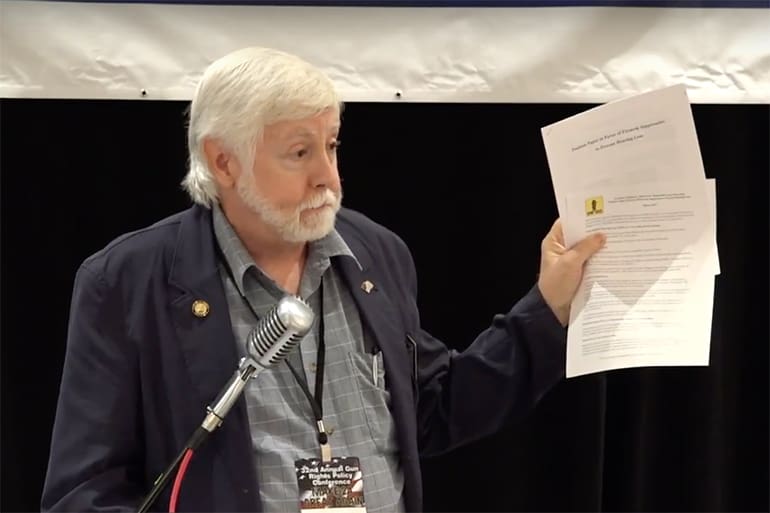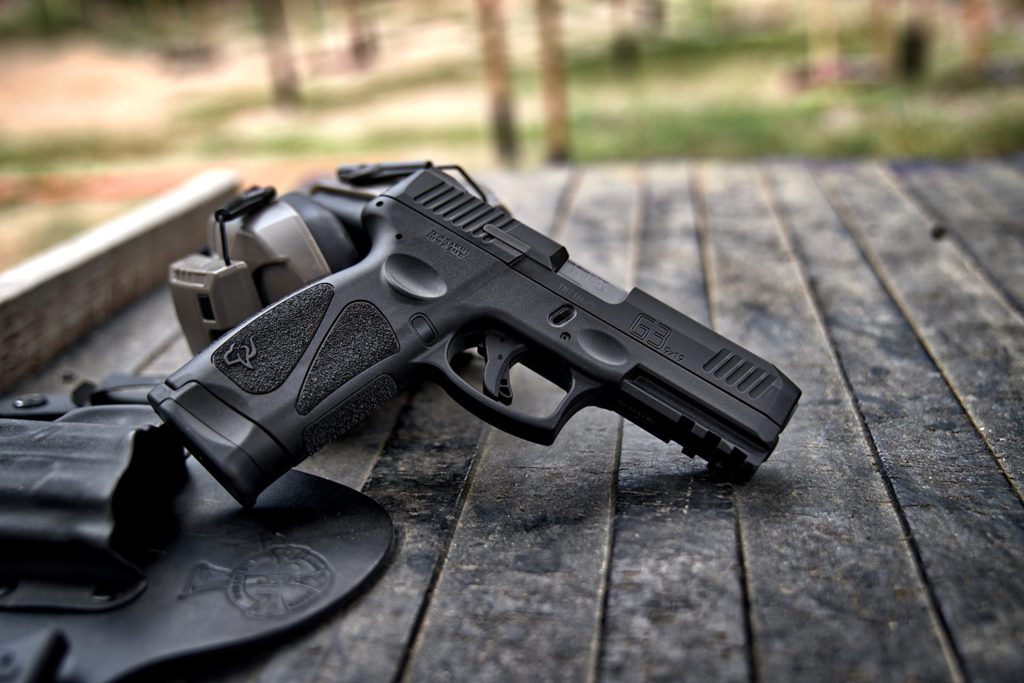Landmark Study Finds Concealed Carry Does NOT Increase Violent Crime

Robert B. Young, M.D. with DRGO, via YouTube
On October 22, Doctors for Responsible Gun Ownership (DRGO) presented new concealed carry-related research undertaken by Dr. Mark Hamill to the Congress of the American College of Surgeons. The key takeaway from this research is that relaxing concealed carry laws has no effect on violent crime rates.
This paper, which was well received and is now available online (paywalled), is an important step toward clarifying contradictory findings in the existing research literature. Past research focused largely on concealed carriers as a group or on the number of concealed carry licenses among the population. However, increased interest in concealed carry is very possibly a response to rising crime rates, not a cause. For this reason, this DGRO-affiliated study measured the effects (or lack thereof) of legislation only, not the number of permits issued or the number of gun owners in the population.
Using data from a 30-year period (1986-2015), during which many U.S. states changed their concealed carry policies in favor of greater leniency, the researchers designed a Carry Restriction Scale that incorporated “no carry,” “may issue,” “shall issue,” and “unrestricted carry.” This allowed the leniency of concealed carry legislation to be meaningfully understood as a variable in their statistical analysis. Then, for good measure, they created a second, binary variable that also measured restrictiveness of concealed carry laws.
For each state and year during that 30-year period, the researchers amassed data on 14 different variables, including the Carry Restriction Scale variable. Among those, they included not only data on various violent crimes (rape, aggravated assault, homicide, etc.) but also data on unemployment and poverty rates, which are known to influence crime. Thanks to this dynamic approach, they were able to actually isolate the variable they were interested in.
Finally, applying a regression analysis that involved over 21,420 discrete data points and two different measures of concealed carry leniency, the researchers confidently confirmed their hypothesis: There is no association between state-level concealed carry laws and the rate of ANY violent crime.
By diligently detailing the best statistical methodology for this data set (and explicitly calling out potential pitfalls for future analysts to avoid), the researchers also blazed a trail for future research. In an area of study rife with political agendas, sloppy methodology, and contradictory findings, this study is an outstanding example of real science at work.
You may also like
-
Illinois: Firearm & Component “Sin” Tax Hearing March 11
-
GET OUT AND VOTE STARTING MARCH 18TH FOR BRAD SCHIMEL
-
Colorado just tried to pull one of the most backdoor anti-gun moves
-
From Evergreen State to ‘Police State’ as Washington Dems Push Permit to Purchase
-
CONCEALED CARRY LICENSE CLASS AT WESTSHORE SPORTSMAN’S CLUB
